
When Alan Hart started his journalism career in Africa at the age of 18, joining ITN television, his editor summed up what his job ought to be: “Keep democracy alive.” Hart made it his life’s mission.
The profession took him around the world as a foreign correspondent, with a stop in Vietnam where he learned that “you cannot defeat an idea with bullets and bombs.”
The Middle East was another destination for him, and one that had even more impact on his life.
The British reporter was probably the only correspondent to have enjoyed on the professional level access to, and on the human level friendship with, the top leaders of both the sides of the Arab-Israeli conflict, including Yasser Arafat and Golda Meir. It was not without reason that, in 1980, he was chosen by United Nations senior leaders to lead a secret peace initiative between Shimon Peres and Arafat, an initiative that, a decade later, became the Oslo process.
But behind the scenes, Hart discovered a bitter truth: that the two-state settlement was “long dead.”
Because the gentile Hart believes that, generally speaking, “the Jews are the intellectual elite of the Western civilization, and the Palestinians the intellectual elite of the Arab world,” his commitment is to find an alternative in order for the two people to work in partnership.
In Zionism: The Real Enemy of the Jews, the 65-year-old Hart reveals his fascinating, at times shocking, experiences and conversations with top leaders in the most volatile region of the world. He puts these in their historical context, and, through a logical demonstration, offers an alternative to the conventional peace process, perhaps a more realistic one.
Throughout your career, you seem to have lost hope in the “two-state settlement.” “It is there in theory; in fact it is long dead,” you say. What makes you so confidently say so?
 |
| Zionism: The Real Enemy of the Jews. Volume 1. By Alan Hart. 596 pages. World Focus Publishing. £19.99. |
In 1980 I found myself engaged in a secret exploratory dialogue between Yasser Arafat and Shimon Peres. The background situation was the following: Towards the end of 1979, Arafat sent a secret letter to the [United Nations] Security Council saying he was prepared to accept resolution 242, that is, to do peace with Israel beyond the 1967 border.
Andy Young [United States ambassador to the United Nations] thought the letter was the biggest breakthrough since 1948, and [President] Carter agreed with him on the necessity to seize the opportunity. But while he tried to bring the Palestine Liberation Organization (P.L.O.) into the peace process, Israel’s then [Prime Minister] Menachim Begin got the Zionist lobby in America to move against Carter, who was punished by having to fire Andy Young.
It was then suggested to me by very senior people of the U.N., who were not unconnected from Carter, that I should try my hand at some unofficial diplomacy because it was generally known in the world that I had good access to both Arab and Israeli leaders as a reporter for the BBC’s Panorama program, and that on the human level I enjoyed friendship with them.
In 1980, Israel was 19 months from its elections, which the whole world (including Carter), hoped Menachim Begin would lose. The game plan was: if I can persuade first Peres and then Arafat to let me be the middleman between them, we would use these months to try and create a position so that when Peres became prime minister, we could go public.
I went to Tel Aviv, met with Shimon Peres behind closed doors, and said to him: “If Arafat is willing, would you agree to let me lead the dialogue?”
Peres agreed, and then he made this statement: “It’s already too late.” He meant too late for peace on any terms Arafat could accept. When I asked for the reason, the following was his reply:
“Every day that passes sees new bricks on new settlements. Begin knows exactly what he’s doing. He’s creating the conditions for a Jewish civil war. He knows that no Israeli leader is going down in history as the one who gave the order to the Jewish army to shoot Jews out of the West Bank … I’m not.”
My point is: if it was too late in 1980—when there were only 70,000 illegal settlers in the occupied territories—how much more too late is it today when they count half a million? And that number is growing. There is absolutely no way that any Israeli P.M. ever goes to confront the settlers.
Some commentators say all the Israeli government has to do is pull out their troops from the Occupied Palestinian Territories, and the settlers would simply follow.
Probably half the settlers could be bought out to have a life in Tel Aviv or somewhere else, but probably half is still a hell of a lot who would fight. I think the two-state solution has long been killed by Israel’s ongoing colonization.
What do you think is the responsibility of the international community on this issue?
I think the real evil in this story is not even Zionism, but rather the governments of the major powers—in particular the U.S., the U.K., and France. The moment they could have put a stop on the trip to disaster was after the 1967 war. They could and should have said: “According to Resolution 242, not only must Israel go out, but furthermore we would not allow it to build any settlements to colonize this newly-occupied land (which Israel does in defiance of international law)—and if Israel does we should sanction it.”
So what do you believe are the options now?
In my view there are only two:
1. The one-state solution in which Zionism loses. It would be a secular state in which Palestinians and Jews who live there now become equal citizens. It would be end of Zionism, but it would mean peace with real security for Jews.
2. The doomsday for the Palestinians. Israel’s policy is currently to create conditions which make life hell for the Palestinians on the West Bank and Gaza in the hope that they would just surrender. I think Israeli leaders still believe they can do that, but they are wrong.
What happens if the Zionist leaders come to the conclusion that they cannot break the will of the Palestinians?
I think then Zionists will create the pretext for a final round of ethnic cleansing to drive the Palestinians out of the West Bank and Gaza. If that happens, there will be a Zionist holocaust. The West Bank will run in blood and it will be mostly Palestinian blood. That, I personally believe, is the road we are on.
Do you believe the countdown to the doomsday can be stopped?
The only power on earth that can confront Zionism is America. The problem is that requiring from Zionism to make peace on terms Palestinians could accept, would mean standing up to Israel and threatening with the use of sanction.
No American president is ever going to do that unless he knows that the majority of America’s Jews would support it, i.e., unless pushed to do so by an informed public opinion.
The problem is that the public opinion is too uninformed to do so. There is only one name of the game to make democracy work: information and education.
Most citizens throughout the Judeo-Christian world are totally ignorant about the truth of history. I’m a classic example. I came out of my mother’s womb conditioned by Zionism’s version of history. It took me 12 to 15 years of being an ITN TV reporter to actually get to the other side of the story. I can understand how people who didn’t have my exposure to it don’t challenge.
There is talk of the “new anti-Semitism” defined as criticism of Israel’s policy that, whether intentionally or unintentionally, has the effect of promoting prejudice against all Jews. What do you suggest to escape that dilemma?
If not told with context and sensitivity, the truth about Israel might provoke anti-Semitism. That’s why I say the key is to explain the difference between Judaism and Zionism. A large part of Zionists’ success to date is that it has managed to conflate the two.
In fact, they are total opposites. Like Christianity and Islam, Judaism has at its core a set of moral values and ethical principles. To the extent that they look to Jerusalem as the centre of their religion, all religious Jews could (and most do) regard themselves as spiritual Zionists.
But political Zionism (and that’s what I refer to in the title of my book) is something else. It is a sectarian, colonialist ideology which created a state for some Jews in the Arab heartland mainly by terrorism and ethnic cleansing. By so doing, it made a mockery of Judaism’s moral values and ethical principles.
Knowing this difference makes two things possible: One is why it is perfectly possible to be passionately anti-Zionist (opposed to Zionism’s colonial enterprise) without being anti-Semitic. The other is why it is wrong to blame all Jews for the crimes of the relative few—hardest core political Zionists in Israel, which is a Zionist, not a Jewish state.
Clearing nations to this difference is my fight, and I gave five years of my life to research and write this book, drawing off my experiences and conversations with leaders.
But it’s not only the gentile Alan who says Zionism is a threat to Judaism. One of my dear Jewish friends is Hajo Meyer, a Holocaust survivor, whose latest book is entitled “The End of Judaism.”
The former bishop of Jerusalem, Riah el-Assal, whom I recently interviewed, made this point: Despite everything Zionism has done to the Palestinians, it’s actually been more disastrous for Judaism, because it isn’t actually land that has enabled Jews to survive, but rather their moral principles.
It seems Jews are overwhelmingly silent about Israel’s policy toward the Palestinians. Do mainstream Jews actually support Zionism?
The silence of the Jews is another obstacle. Throughout history, they have generally been liberal, except on this issue. My best friend in the world after my wife is my Jewish accountant. I’ve known him for 40 years, and I even once took him to Israel to meet Golda Meir as a way of saying “thank you” to him. He doesn’t like what Israel has done, but he won’t … read … my … book. [Hart paused after each word to convey despair.] He doesn’t want to know the truth of history.
I once said to him: “Like 99 percent of all Jews in the world, you believe that when Israel went to war in 1967, it was either because the Arabs attacked first or because they were going to attack. If I can convince you, using only Israeli sources, that this is a complete fabrication, do you believe me?” He paused and said: “If what I believe about that war is not true, then everything collapses.”
Ilan Pappe (an Israeli revisionist historian) makes this point: Israel is not entirely Zionist. There are a lot of Jews in Israel who would make peace on almost any terms Palestinians would accept. The sad thing is that Israelis have been as much conditioned by Zionist propaganda as the rest of the world.
There is another reason why people like my Jewish accountant are frightened to speak out about Zionism: deep down among every Jew there is a fear of Holocaust II. That’s understandable.
In my book I call for a new Covenant—not between Jews and their God, but between Jews and the Gentiles. In it, Gentiles would commit once and for all to slaying the monster of anti-Semitism. The Jews would commit to dealing with the monster of Zionism.
Related
- Zionism vs Judaism
- Zionism: Real Jew reveals the Truth
- Real Torah Jews against Zionism
- The difference between Real Judaism and Zionist
- Chief Rabbi issues ruling legalizes killing Arabs
- How to kill Goyim
- IOA Rabbis: ‘Palestinians to the Ovens!’
- Jew Watch
- Map of “Greater Israel” Published by Radical Settler Movement
- Protocols of Zion Explained
- Settler Violence Not Punished [incl data sheet]
- What The Media Forgets About Israel
- Ziogeist
- Zionists won’t let U see this on TV!

 March 31, 2011
March 31, 2011 







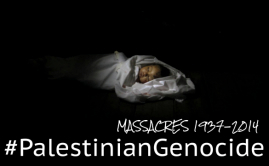







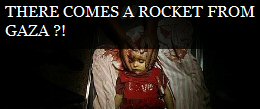




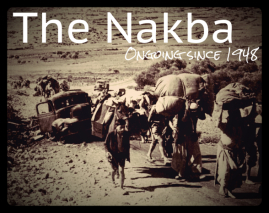



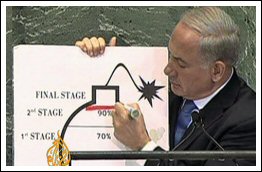




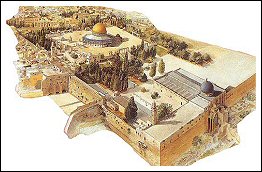


Comments are closed.